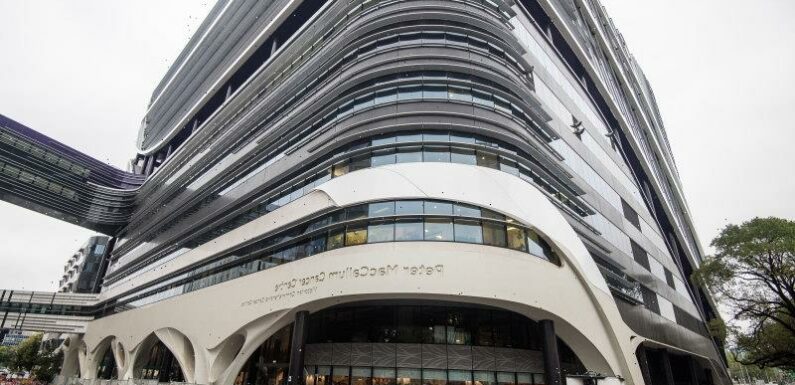
Anyone who works in the public health system knows that managing patient welfare and achieving the best outcomes are delicate and difficult matters. Who, for example, gets priority on a waiting list?
Is it those who are dying, or those in the most pain? Is it the elderly or the young? Those with complex conditions, or patients who could be in and out in a single day?
Surgery – overloaded and understaffedCredit:Glenn Hunt
While these critical decisions are made every day by medical specialists, their task is made much harder when the waiting list for elective surgery in the state’s public health system is beset by bottlenecks and breakdowns.
As Melissa Cunningham reports today, the latest problem has emerged at Victoria’s renowned Peter MacCallum Cancer Centre, which has been forced to reduce its surgical commitments during February due to shortages of operating theatre nurses and other staff.
While the centre expects the pressure might ease in March, the acute strain highlights just how much work must be done to fillet down the waiting lists.
A confluence of issues has hit the public health system. Surgical lists swelled during the pandemic lockdowns as all non-urgent surgery in the state was cancelled. Pandemic restrictions meant many people delayed seeing medical practitioners, leading to worsened conditions when they were ultimately diagnosed.
Nurses have worked exceptionally long hours during the pandemic, covering for colleagues who were temporarily furloughed due to illness or because they had been in close contact with a COVID case.
And while there are now more registered nurses in Victoria than before the pandemic, the difficulty in finding nurses willing to work full-time is nationwide. It permeates all levels of hospital, maternity, maternal and child health nursing services, and elsewhere.
Hospital nurses are burnt out. Many are seeking shorter hours or a lengthy break. Some are simply leaving the profession.
Others are on summer leave or maternity leave and finding experienced full-time nurses to fill their positions has been challenging. Peter MacCallum, for example, has 12 vacant positions for full-time theatre nurses.
There is always a waiting list in the public system, but many thousands of Victorians have been waiting years for surgery that might alleviate pain, improve their physical movements, fend off potentially more serious conditions, and help them achieve a better quality of life.
Orthopaedic surgeon John Cunningham has described his public elective waiting list as “catastrophic”.
It is now 10 months since the state government committed $1.5 billion towards slashing the enormous waiting list for elective surgery. Part of that commitment involved extending publicly funded surgery into a selection of private and public hospitals, among them Peninsula Health’s Frankston Private Hospital and Bellbird Private Hospital in Blackburn.
Peter Mac was one of the eight hospitals earmarked for extra surgery facilities to help it wade through the backlog of cancer patients needing surgery.
The state government might claim the elective surgery waiting list is easing, but the percentage of elective patients treated within the recommended 365 days period fell from almost 90 per cent in the December 2021 quarter to 75 per cent by September.
That suggests the pressure has not eased and, in some areas, it is worsening. AMA Victoria vice president Jill Tomlinson was correct last year when she warned that, despite the government’s surgery blitz, “it will take years to get on top of this”.
While the government is trying to reduce the backlog of cases, miracles don’t happen overnight. The solutions are not easy because Victoria’s health system is clogged all the way through the pipeline: from obtaining ready and affordable primary care (via a general practitioner), to locking in an appointment with a specialist, and then securing a precious slot in surgery.
The Victorian and NSW premiers have united to pressure the federal government to improve access to GPs, including increasing Medicare rebates, in an attempt to help relieve some of those pinch points, and are expected to raise the matter at this week’s national cabinet meeting.
But for patients, the long wait is simply awful – especially for the sick and distressed who must put up with this day after day, year after year.
The Age’s new editor Patrick Elligett will send a newsletter to subscribers each week. Sign up to receive his Note from the Editor.
Most Viewed in Politics
From our partners
Source: Read Full Article
